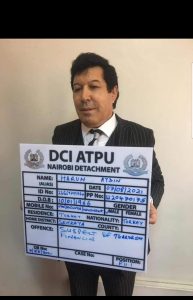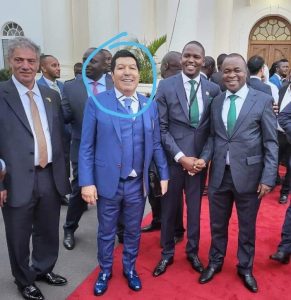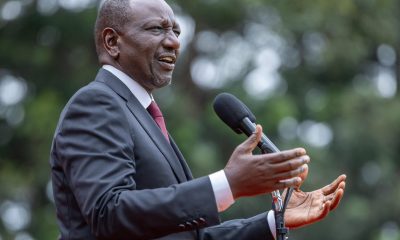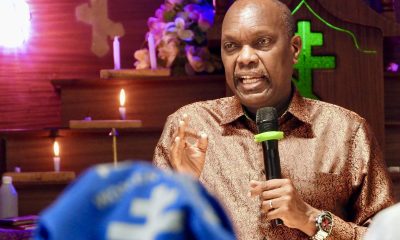News
Deported Terrorist Suspect Harun Aydin Wins Multibillion Affordable Housing Deal with Ruto’s Administration
Aydin appears to have solidified his position within Ruto’s inner circle. He was among the guests at a State House luncheon hosted by the president shortly after his inauguration, signaling a close relationship between the two.
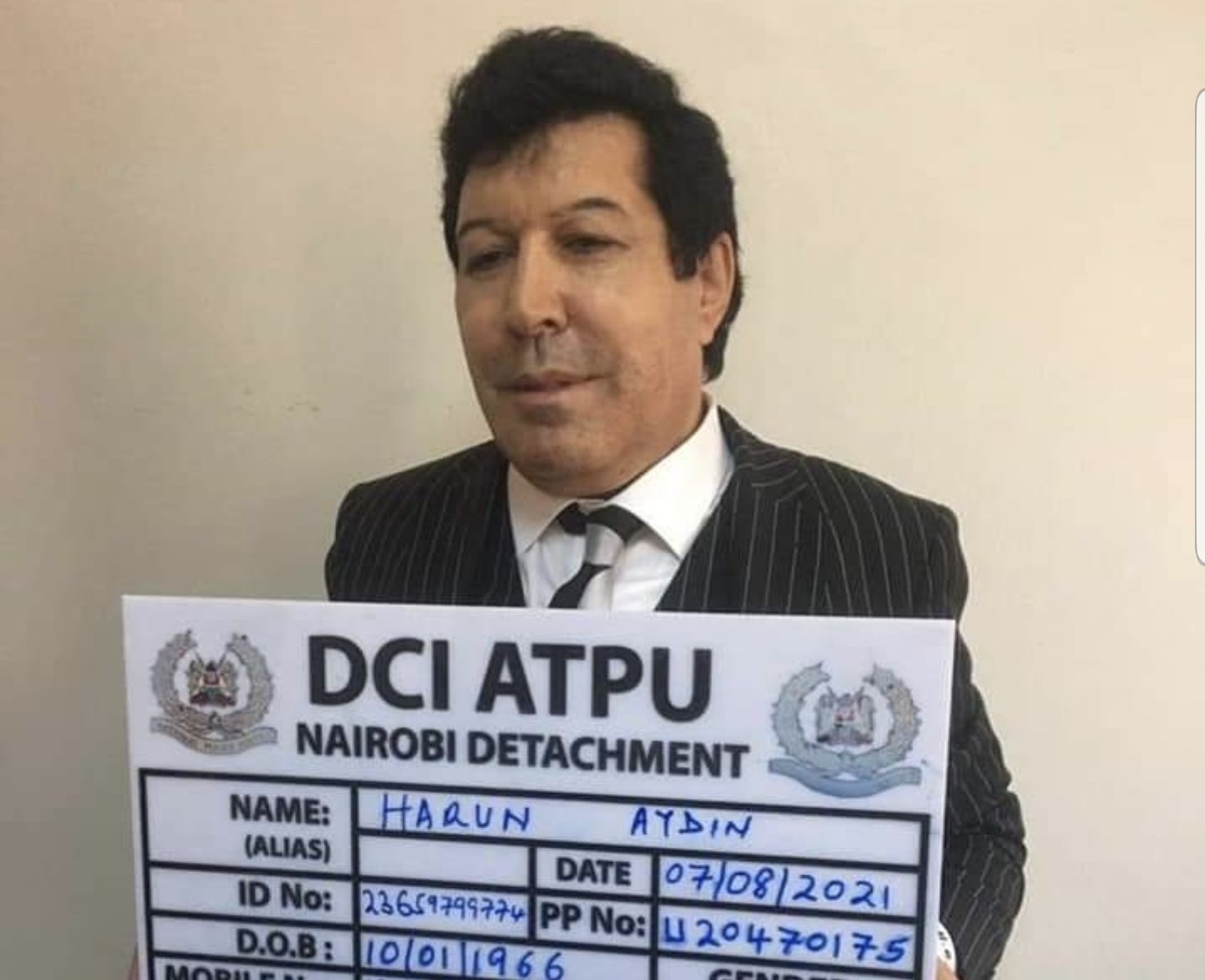
Harun Aydin, a Turkish businessman once deported from Kenya on suspicion of terrorism financing and money laundering, has emerged as a key beneficiary of President William Ruto’s multi-billion-shilling affordable housing program.
Aydin’s company, MHOA Africa Limited, has secured a lucrative contract to construct at least 100,000 homes under the government’s ambitious housing initiative. This development has raised serious questions about transparency, the influence of politically connected individuals in state contracts, and the integrity of public procurement processes.
From Deportation to Multi-Billion Deals
The deal, awarded to a joint venture between MHOA Africa and Demir Group, positions Aydin at the forefront of Kenya’s affordable housing agenda—a flagship project of the Ruto administration. The project is partially funded by a controversial housing levy, which deducts 1.5 percent of workers’ gross monthly pay, sparking widespread public outcry over increased taxation.
Aydin’s rise to prominence in Kenya’s lucrative housing sector is remarkable, given his controversial past. In August 2021, he was detained and deported by Kenyan authorities, who labeled him a suspect in terrorism financing and money laundering. At the time, Aydin was part of a delegation scheduled to accompany then-Deputy President Ruto on a trip to Uganda. However, the trip was abruptly blocked by immigration officials, who cited high-level intelligence concerns.
While the State linked Aydin to illegal activities, Ruto vehemently defended him, calling him a “victim of top-down arrogance bred by patronage and cartels that criminalize enterprise.” In a tweet on August 7, 2021, Ruto accused the government of unfairly targeting Aydin, suggesting that the deportation was politically motivated amid his fallout with former President Uhuru Kenyatta.

Lawyer Ahmednasir Abdullahi at the Kahawa Law Courts on August 9, 2021 where announced that his client Harun Aydin was deported to Turkey.
Fred Matiang’i, then Interior Cabinet Secretary, stated that Aydin was deported over money laundering links and illegal movement into and out of Kenya. Matiang’i added that the businessman was not charged in court due to Kenya’s cordial relations with Turkey. Aydin’s lawyer at the time, Ahmednasir Abdullahi, vowed to work towards his return to the country.
Terrorism Allegations
Aydin’s past is further clouded by allegations of terrorism. According to reports, he was arrested in Frankfurt, Germany, in October 2001 on charges of “having planned serious acts of violence as a member of a terrorist group with an Islamic fundamentalist background.” At the time of his arrest, Aydin, then 29, was a student living in Germany.
A Frankfurt court described Aydin as a leading member of a militant group based in Cologne, led by Muhammed Metin Kaplan. The group, known as the Federation of Islamic Associations and Communities, reportedly had 1,300 members, most of whom were Turkish. Aydin was found in possession of luggage containing camouflage clothing, a chemical-weapons protection suit, a ski mask, and materials to produce an explosive detonator.
Investigators also discovered a CD-ROM with a training video for Islamic holy warriors, a suicide note to his wife, and a last testament. Aydin was accused of giving instructions for serious crimes, including murder and manslaughter, in several instances. His lawyer, however, claimed that Aydin was traveling to Tehran for a book fair and had agreed to carry a suitcase for another Turkish passenger with excess luggage.
Before his arrest in Germany, Aydin had been sentenced to four years in jail for advocating the murder of a rival, Halil Ibrahim Sofu, but was later acquitted.
Turn of Fortune
Fast forward to 2025, and Aydin’s fortunes have taken a dramatic turn. His company, MHOA Africa, was registered in March 2023, just six months after Ruto assumed the presidency. The firm, co-owned by Aydin and his Turkish partner Hamit Demir, was among 199 companies pre-qualified for the affordable housing program. It was subsequently selected under Category A, reserved for developers tasked with constructing over 100,000 units.
The joint venture between MHOA Africa and Demir Group is expected to design, finance, and build the homes on public land, benefiting from incentives such as fast-tracked approvals and tax exemptions. The government will also facilitate the sale of the houses, ensuring a steady revenue stream for the developers.
Criticism and Controversy
With over 200 companies bidding for the affordable housing contracts, critics have questioned the transparency of the tender process and the apparent favoritism shown to Aydin’s firm. The project’s funding through the controversial housing levy, which compels Kenyan workers to contribute 1.5% of their salaries (matched by their employers), has further fueled public discontent.
“This deal reeks of crony capitalism,” commented one critic on X (formerly Twitter). “It’s baffling how a man once accused of terrorism financing is now a key player in a multi-billion government project.”
“Forged an Investor work permit (Class T) that states the Investor should operate within KE. Flagged by Interpol for money laundering & Terror financing, ATPU intercepted his private plane en route to UG. Equity bank denied he had a loan to finance his dummy contract in the energy,” another user noted.
The Ministry of Lands, Public Works, Housing, and Urban Development has remained tight-lipped about the deal, adding to the growing skepticism.
Aydin’s involvement in the affordable housing program has reignited debates about the Ruto administration’s commitment to accountability and good governance. The housing levy, introduced alongside other contentious taxes, has been criticized for burdening ordinary Kenyans while benefiting well-connected individuals and corporations.
Despite the controversy, Aydin appears to have solidified his position within Ruto’s inner circle. He was among the guests at a State House luncheon hosted by the president shortly after his inauguration, signaling a close relationship between the two.
As Kenya forges ahead with its affordable housing agenda, the Harun Aydin saga serves as a stark reminder of the blurred lines between politics, business, and accountability. For many Kenyans, the deal is a bitter pill to swallow, raising concerns about who truly benefits from the government’s flagship projects.
The Ruto administration has set a goal of building 250,000 houses every year on public land using funds from the levy.
Kenya Insights allows guest blogging, if you want to be published on Kenya’s most authoritative and accurate blog, have an expose, news TIPS, story angles, human interest stories, drop us an email on [email protected] or via Telegram
-

 Grapevine2 weeks ago
Grapevine2 weeks agoAlleged Male Lover Claims His Life Is in Danger, Leaks Screenshots and Private Videos Linking SportPesa CEO Ronald Karauri
-

 Grapevine1 week ago
Grapevine1 week agoRussian Man’s Secret Sex Recordings Ignite Fury as Questions Mount Over Consent and Easy Pick-Ups in Nairobi
-

 News5 days ago
News5 days agoTHE FIRM IN THE DOCK: How Kaplan and Stratton Became the Most Scrutinised Law Firm in Kenya
-

 Investigations7 days ago
Investigations7 days agoMulti-Million Dollar Fraud: Three Kenyans Face US Extradition in Massive Cybercrime Conspiracy
-

 Economy6 days ago
Economy6 days agoIran Demands Arrest, Prosecution Of Kenya’s Cup of Joe Director Director Over Sh2.6 Billion Tea Fraud
-

 Business6 days ago
Business6 days agoA Farm in Kenya’s Rift Valley Ignites a National Reckoning With Israeli Investment
-

 Africa1 week ago
Africa1 week agoFBI Investigates Congresswoman Ilhan Omar’s Husband’s Sh3.8 Billion Businesses in Kenya, Somalia and Dubai
-

 Business2 weeks ago
Business2 weeks agoM-Gas Pursues Carbon Credit Billions as Koko Networks Wreckage Exposes Market’s Dark Underbelly

